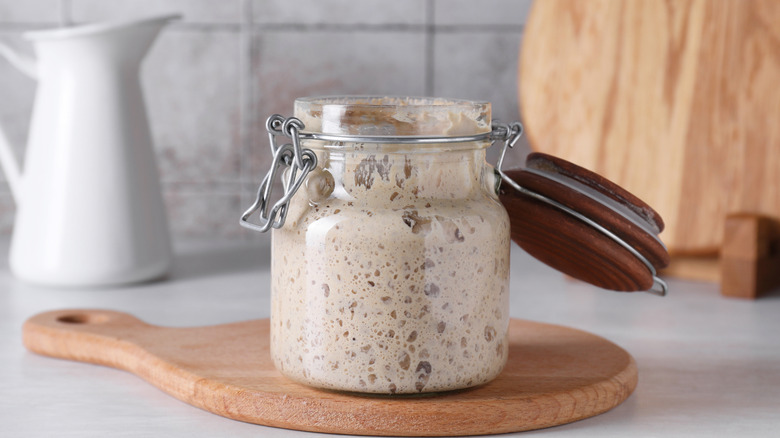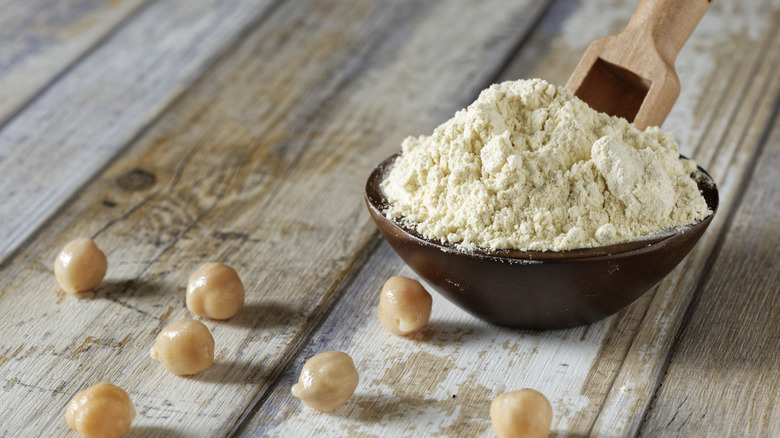The Additional Ingredient You Need For Speeding Up Your Sourdough Starter
While you might need to go through some trial and error in order to consistently make bakery-quality loaves of sourdough bread at home, starting the process couldn't be easier. All you need to craft a basic sourdough starter is some flour, water, and time — we've even got a simple from-scratch sourdough starter recipe if you need some guidance with the process. However, if you're looking to speed things up a bit, there are two options you may want to try out, depending on the flavor you're going for and what you have on hand.
"Rye flour, as well as chickpea flour, can help kickstart a traditional sourdough starter," explains Nathan Myhrvold, founder of Modernist Cuisine, Modernist Cuisine Gallery, and lead author of "Modernist Cuisine: The Art and Science of Cooking." A starter made with regular flour usually takes about five days in total before it's ready to use whereas a chickpea flour starter can be ready in approximately three days. Rye flour ferments quickly because it creates a lot of enzyme activity, which is why it's a solid pick to fast-track the process of creating your starter, aka levain. However, as Myhrvold warns, "These are only useful if you are going to use your levain within a couple of days. Any longer than that and you are better off starting with bread flour and water."
Faster starter, different flavor profile
As Nathan Myhrvold explains, there are a ton of different factors that influence your sourdough bread's flavor, so "even levains made with the same flour will taste different depending on temperature and feeding schedule." However, swapping out the standard bread flour for chickpea or rye flour will obviously make a much bigger impact in terms of the overall flavor profile. "A rye flour will add a tangy rye flavor to your bread. A chickpea flour levain won't taste sour like a regular levain, but it adds its own unique flavor," says Myhrvold.
While sourdough made with bread flour has a relatively neutral flavor profile, both rye and chickpea flours have particular flavor notes that you'll want to be mindful of when deciding what add-ins to incorporate in your baked goods. Chickpea flour tastes somewhat nutty, making it well-suited to use with sweet and savory flavors. It's perfect if you're looking to branch out and turn your sourdough starter into cookies.
Rye flour's flavor intensity will depend on the balance in your starter — obviously, a starter made entirely from rye flour will taste a lot more distinctively of rye than a starter where you've just added a portion of rye flour to bread flour to speed things up. However, another benefit to rye is that it leaves your baked goods extra moist, so if you struggle with dry sourdough you may want to give rye flour a try.

